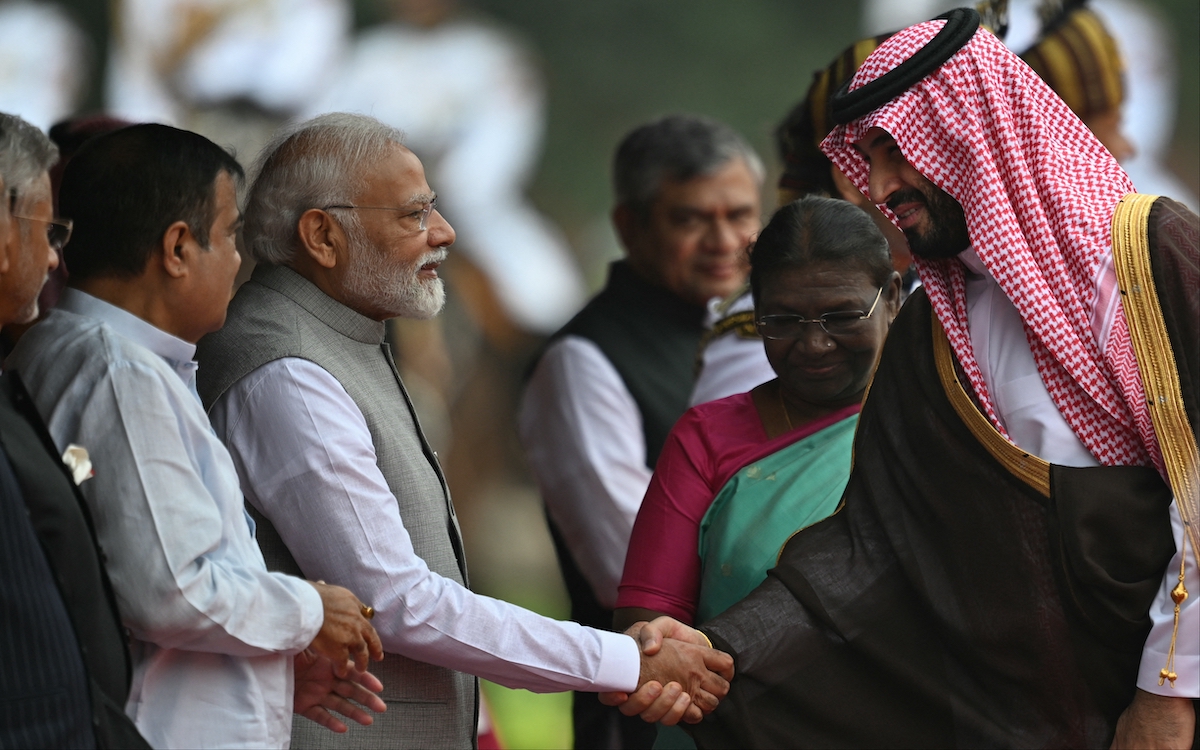
In a historic development with far-reaching geopolitical implications, several nations spanning continents have come together to announce the creation of the India – Middle East – Europe Economic Corridor (IMEC). This development is seen as a strategic response to China’s Belt and Road Initiative (BRI), which has expanded China’s influence across Asia, Africa and Europe. This mega India-Middle East-Europe shipping and railway connectivity corridor launch underscores the global shift in economic and geopolitical power, with India at the heart of this strategic corridor.
Perhaps the most remarkable aspect of this pact is the inclusion of Israel, a nation that has historically faced tensions with many Arab countries. With Israel as a party to the IMEC, it signals a monumental shift in Middle Eastern economics and dynamics. The corridor will connect Israel with its Arab neighbors, promoting economic cooperation and fostering a more interconnected Middle East. It is important to underline that the IMEC cannot be achieved without global peace and a new global partnership that will eradicate poverty and transform economies. The deal represents an Arab normalization with Israel, along with security and military assurances for the Arab Gulf states, led by Saudi Arabia, allowing them to embark on a secure developmental path, ultimately contributing to the political stability of this region, which has not ceased to be in turmoil for a century. The deal also completely sidelines Iran as it becomes a part of a Sino-Russian alliance, and partially keeps Turkey, which is still looking for its interests between Eurasia and NATO,
Lebanon has been left out of the initiative, thus denuded from a role in fostering connectivity and economic integration between Asia, the Arabian Gulf and Europe. Of course, one will recall the August 4 explosion of the Beirut Port (and will believe in a conspiracy theory of the bombing) which consequently excluded Lebanon from a mega map for economic cooperation. The August 4 explosion prevented Beirut from playing a role in a significant milestone in global economic and political dynamics. The traditional Phoenician shipping role of Lebanon is just history, with Beirut losing most of its preferential trade maritime routes linking the Greek islands, across southern Europe, down the Atlantic coast of Africa, and up to ancient Britain.
The corridor would facilitate the development and export of clean energy, expand access to reliable electricity and support innovation in advanced clean energy technology, but mostly it will increase commercial trade. It will include the construction of railways and pipelines, however, its key features include:
- Dual Corridors: IMEC will consist of two distinct corridors – the east corridor linking India to the Arabian Gulf and the northern corridor connecting the Arabian Gulf to Europe.
- Enhanced Connectivity: The corridor will feature the installation of infrastructure for electricity and digital connectivity, as well as pipelines for clean hydrogen export. This will not only secure regional supply chains but also improve trade accessibility and facilitate trade operations.
- Economic Unity and Job Creation: IMEC aims to increase economic efficiency, reduce costs, and foster economic unity among participating nations.
- Environmental and Social Impact: A strong emphasis will be placed on environmental, social, and governance impacts, aligning the project with sustainable development goals.
- Transformative Integration: IMEC is set to transform the economic landscape by seamlessly integrating Asia, Europe, and the Middle East, creating a corridor for trade and investment.
One of the key points emphasized in the declaration was the urgent need to address the “global trust deficit.” Additionally, a pivotal initiative discussed was the establishment of a rail and shipping connectivity network linking the United States, India and Gulf states. This initiative aims to facilitate smoother trade and cooperation among these regions and bridge civilizations. Remember the Silk Road, known as the first global trade route in history? Like the Silk Road, the IMEC will have a scope and importance far greater than the simple exchange of goods to serving as a vehicle for the fruitful exchange of arts, religion, cultures, ideas and technology, paving the way for a cosmopolitan world ruled not just by a new version of a “Pax Romana” (unprecedented peace and economic prosperity throughout the Roman Empire, which spanned from England in the north to Morocco in the south and Iraq in the east), but by a world without wars, and where economic interests are complimentary.
Are we on the eve of a “Pax Middle East”?
Maan Barazy is an economist and founder and president of the National Council of Entrepreneurship and Innovation. He tweets @maanbarazy.
The views in this story reflect those of the author alone and do not necessarily reflect the beliefs of NOW.








